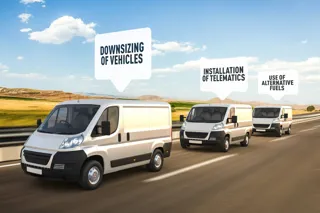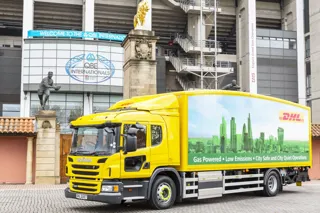Large fleet operators including Kuehne + Nagel, Wincanton, ASDA, Brit European, Howard Tenens and Great Bear will trial the effectiveness of 81 dedicated gas-powered HGVs.
It is funded in part by the Office for Low Emission Vehicles in partnership with Innovate UK via the recently launched Low Emission Freight and Logistics Project.
Led by Air Liquide, Cenex will manage the project, update a dedicated gas vehicle hub website and organize informational workshops for participating fleet operators and interested members of the industry.
Five lorries are being trialled, ranging from 12 to 44 tonnes, and are all new to the UK market.
The trial will road test the HGVs across 10 different vehicle configurations, creating a wealth of valuable data on vehicle performance, fuel efficiency, reliability and cost.
By running on compressed natural gas (CNG) and liquefied natural gas (LNG) the vehicles are expected to reduce CO2 emissions by up to 8%, and those run on biomethane can expect to see a 70% reduction in CO2 emissions, compared to a similarly sized diesel HGV.
The trial will also test the effectiveness of a new cryogenic trailer refrigeration technology. The liquid nitrogen cooling system promises to reduce the high energy demands of refrigeration units, further reducing HGVs CO2 and air quality emissions.
The project aims to demonstrate lower-emissions technology innovation into the UK’s logistics industry and HGV fleets, which account for 17% of all UK road transport emissions. Working in partnership with Air Liquide as the project manager, Cenex will manage all data analysis and project dissemination, update a dedicated gas vehicle hub website, and organize informational workshops for participating fleet operators and interested members of the industry.
Daniel Lambert, commercial director, at Air Liquide Advanced Business & Technologies, said: “OEMs are working hard to bring promising zero emissions technologies to the new lorries they design, but without real life road testing by big fleet customers, these technologies will not be able to impact CO2 emissions in a big way.”




















Login to comment
Comments
No comments have been made yet.